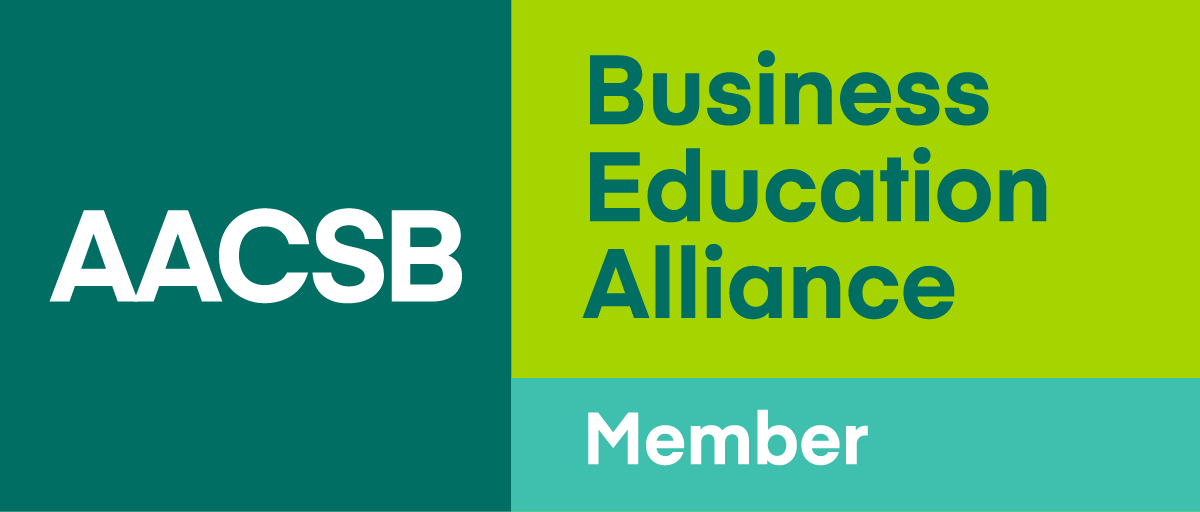【Management Studies Research Center】Win-Win Strategies for Technology and Sustainability, and Job Search Tactics in the Semiconductor Industry: Insights from Two Senior HR Executives
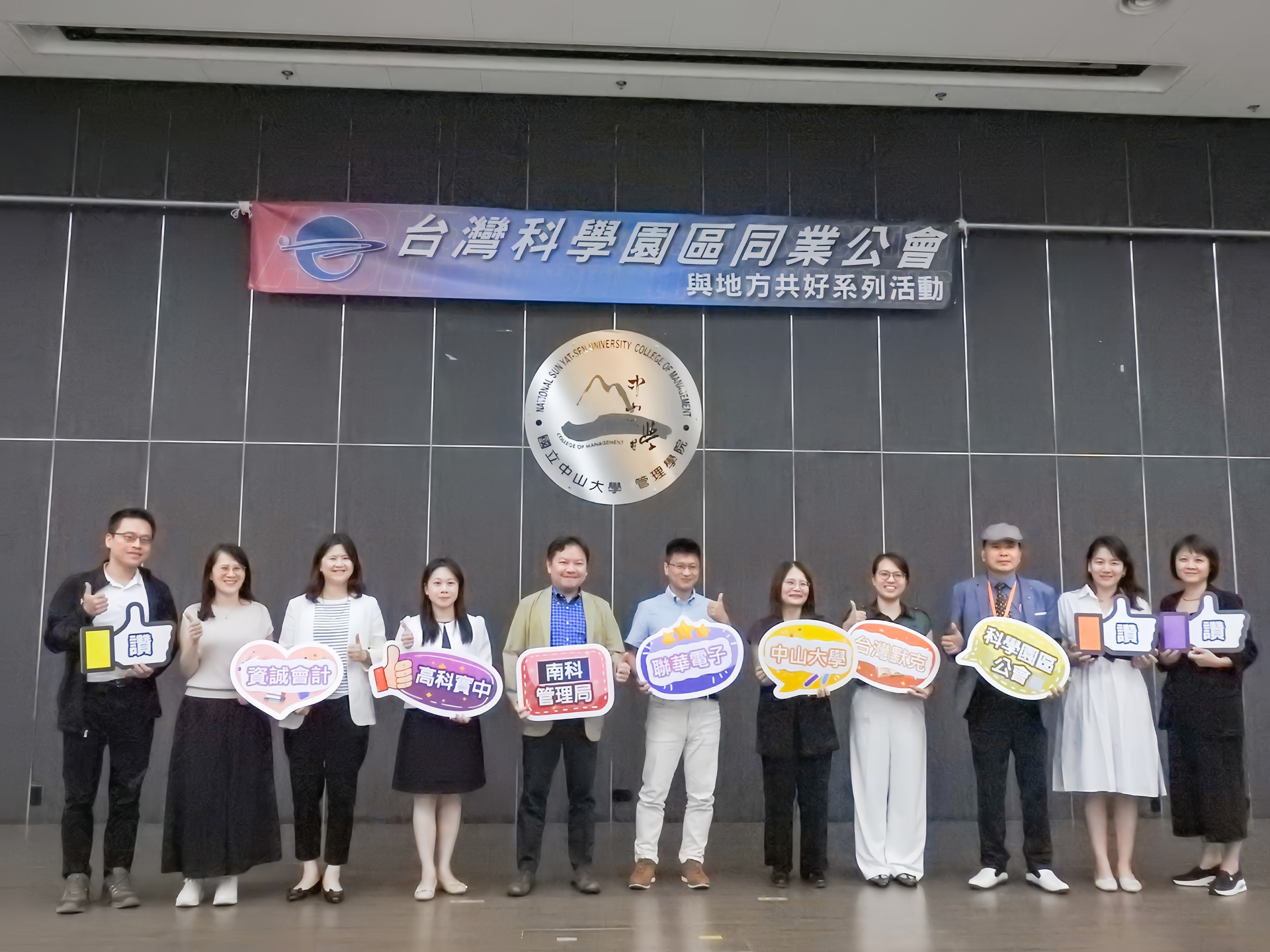
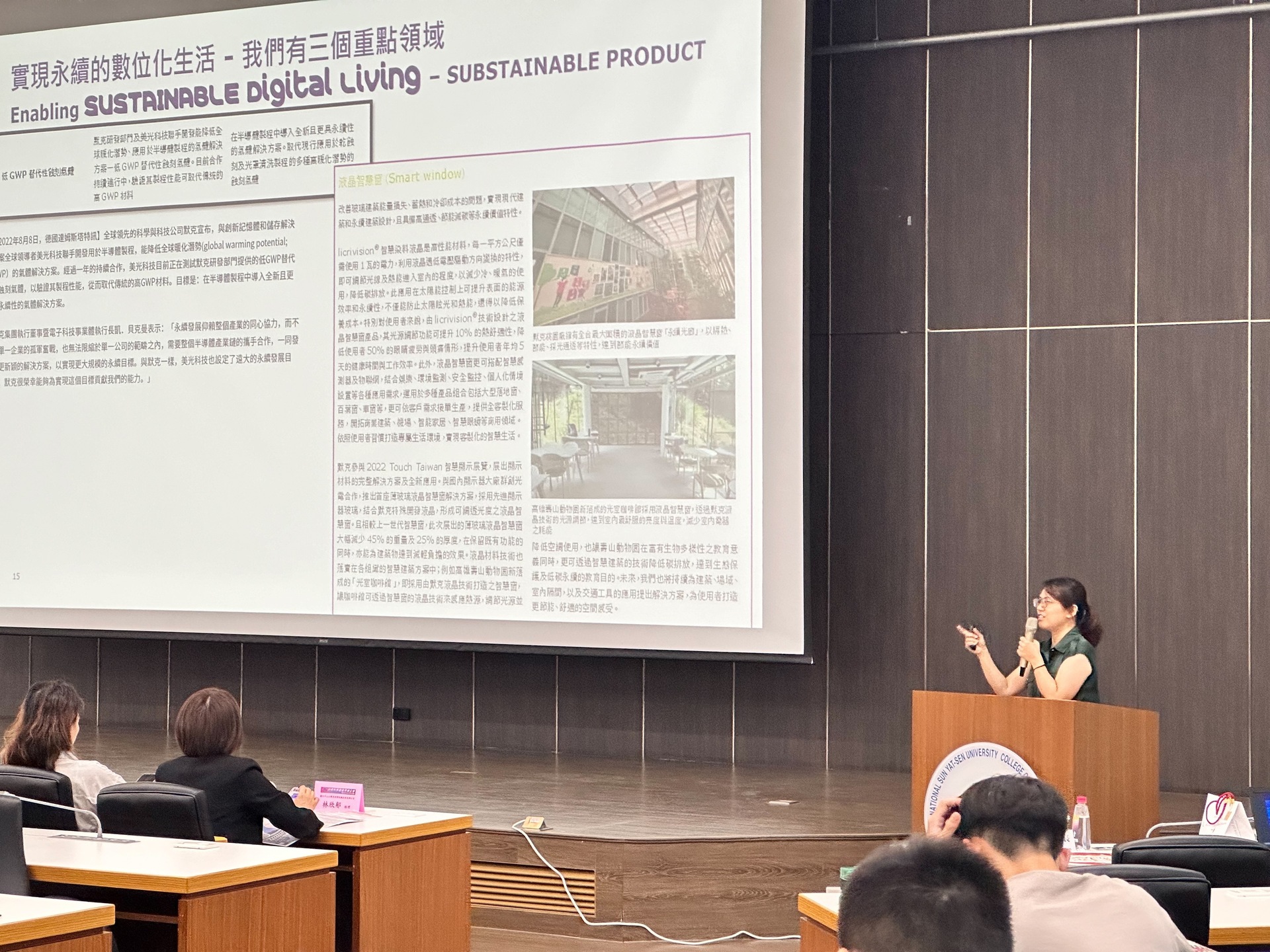
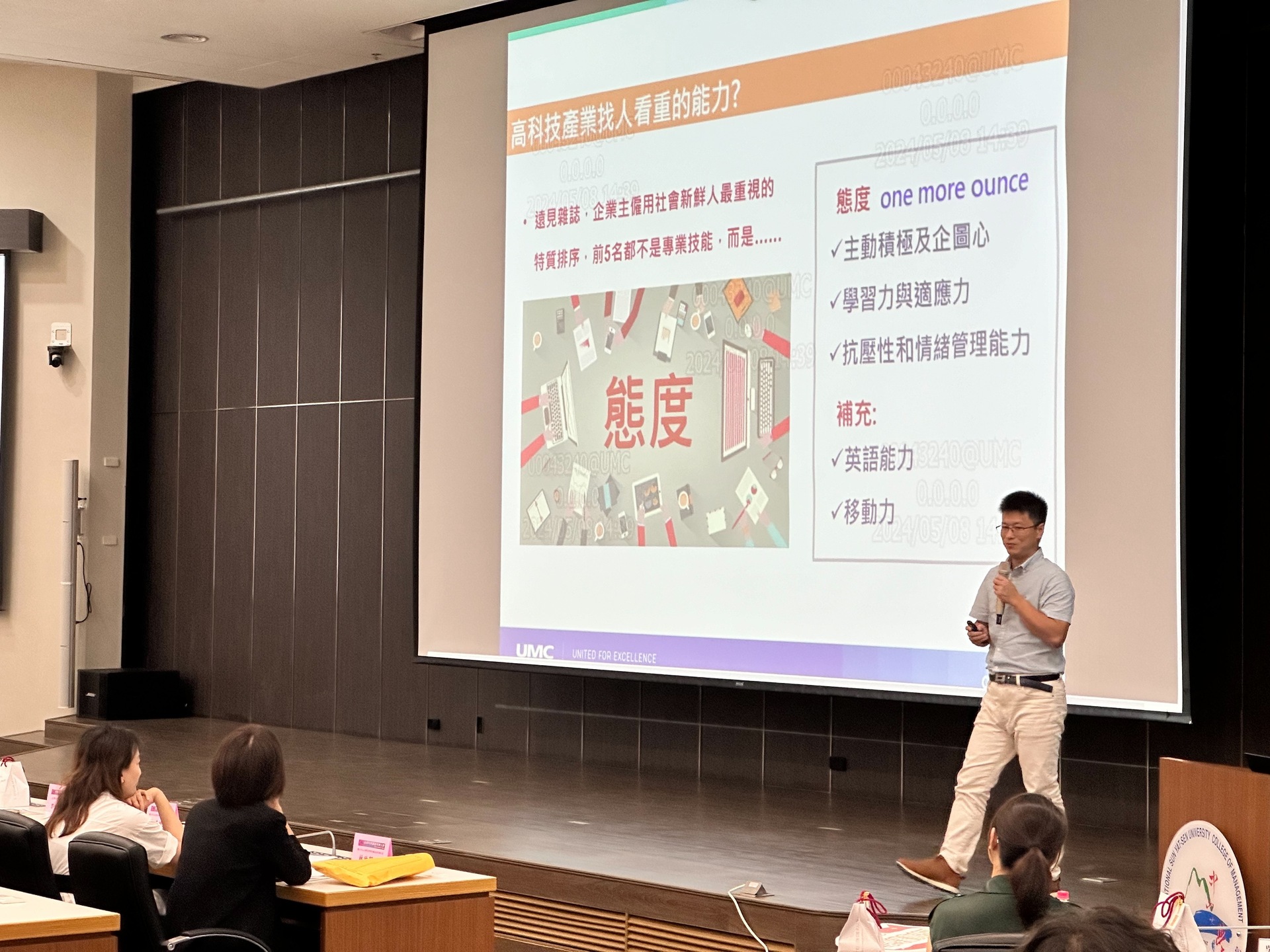

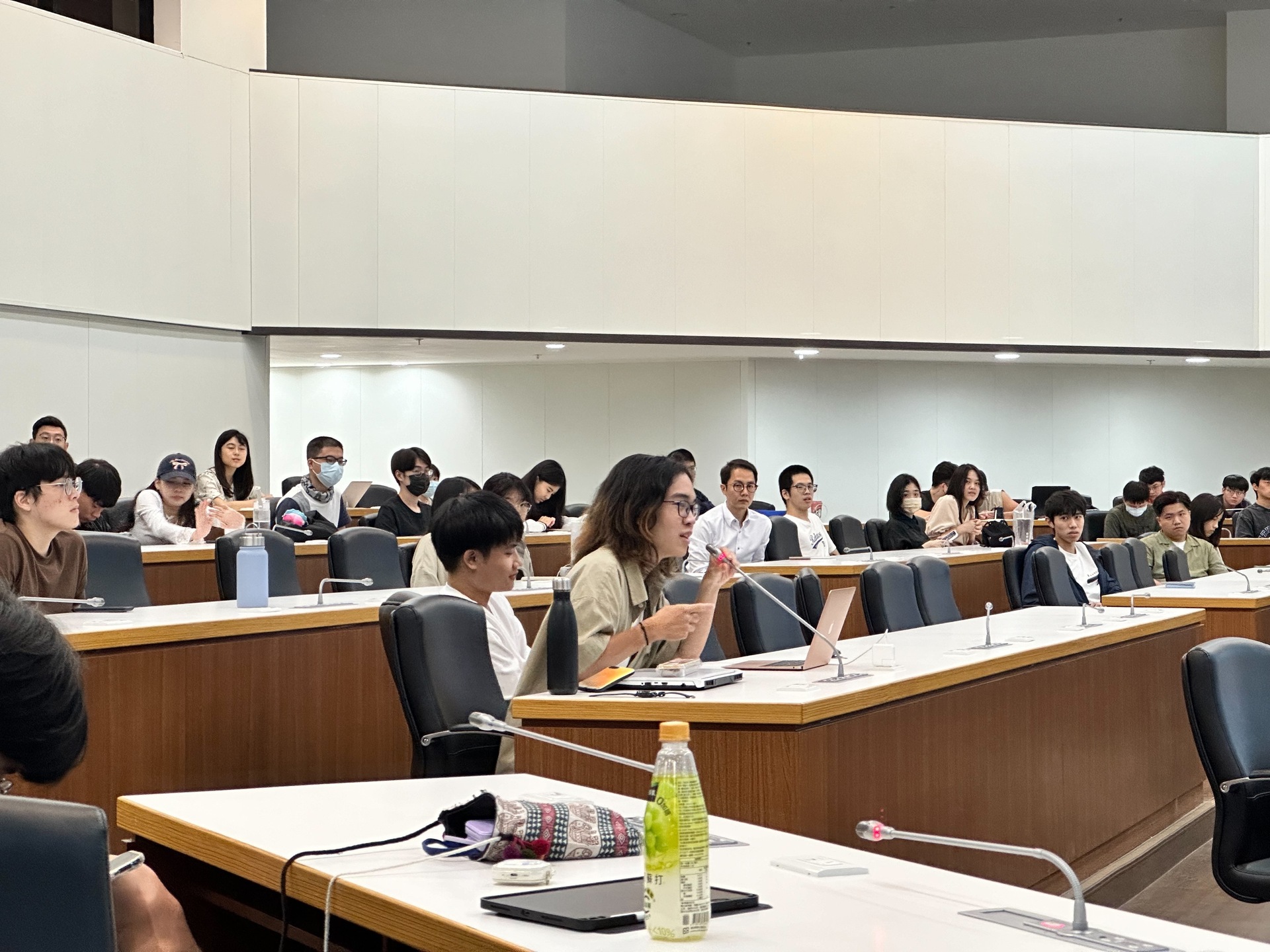
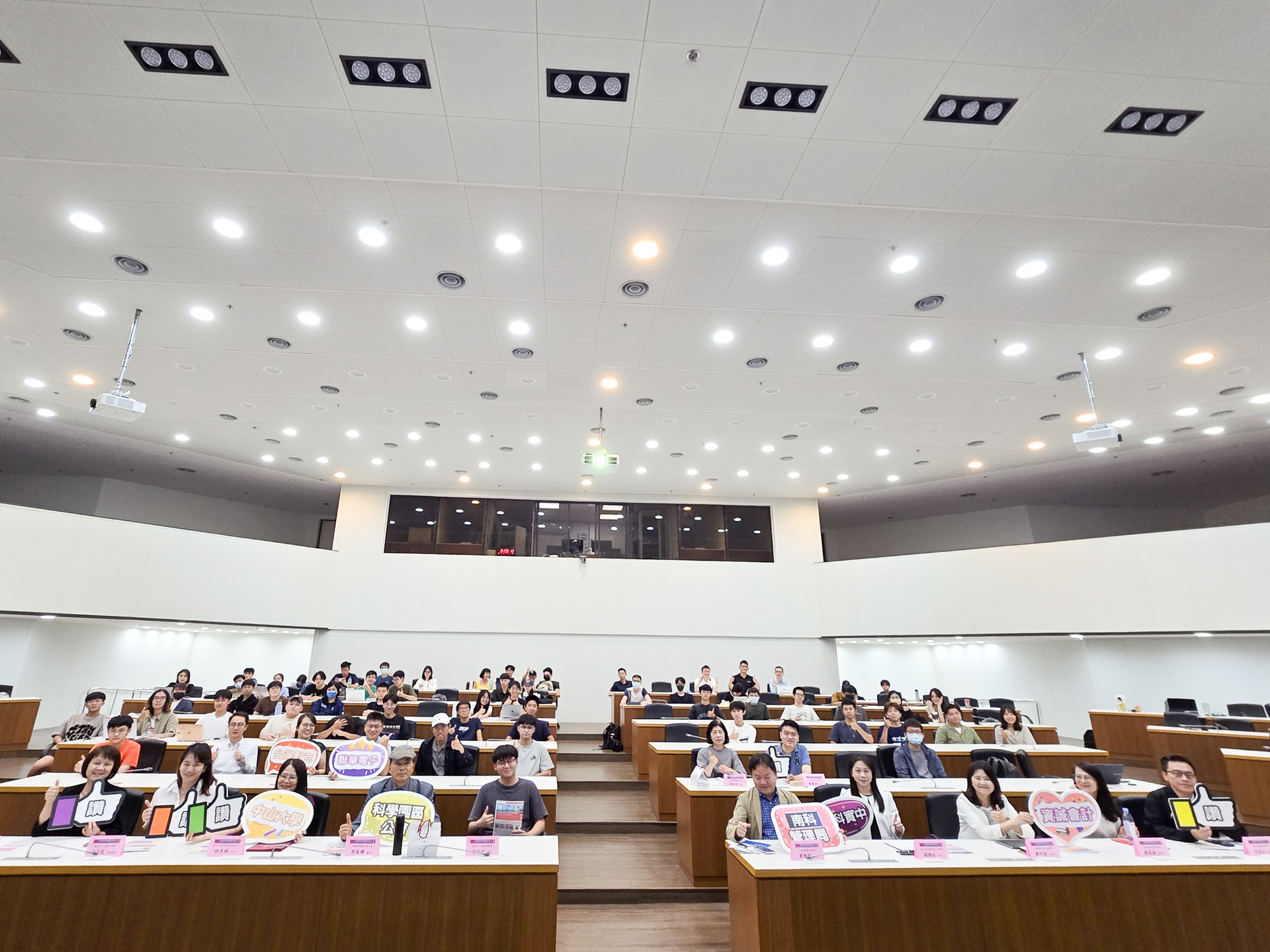
As a driver of modern society, the technology industry plays a crucial role in leading future developments. Among these, the development of AI has become a focal point and trend within the industry. However, along with the applications of AI, concerns regarding energy consumption have emerged, highlighting the challenge for enterprises to achieve sustainable development. In Taiwan, the semiconductor industry is a vital component of the technology sector and has long been a core focus for job seekers. Yet, many individuals lack understanding of the industry's operations and job-seeking strategies.
The Management Research Center is honored to collaborate with the Southern Region Office of the Taiwan Science Park Industries Association to host the "Building a Better Future Together Series – Technology Public Welfare Lecture at National Sun Yat-sen University." We have invited Mr. Shih-Chia Chou, Chief Human Resources Officer of Merck Taiwan, and Mr. Chen-Chia Wu, Manager at UMC, to shed light on the mysteries of the technology industry!
"Driving Sustainability through Technological Innovation"
The rapid development of AI (Artificial Intelligence) is transforming the way industries interact and operate, shaping a more interconnected world. Various sectors such as transportation, education, and healthcare are deeply impacted by the application of AI technology. Take the healthcare sector, for instance. Through machine learning and big data analysis, AI technology is driving personalized medicine, offering patients customized and more precise treatment plans. However, the development of AI technology cannot be separated from its hardware foundation. Chips, as one of the core components of AI systems, require increasingly stringent purity requirements for chemical materials during the manufacturing process. In response, Merck's electronic materials supply system provides advanced electronic materials, empowering wafer processing, thus driving progress and capacity enhancement in the electronics industry.
The development of AI also brings about energy consumption issues. Research indicates that the energy consumption required for one ChatGPT search is 33 times higher than that of a Google search! Therefore, alongside technological advancement, it is imperative to explore more energy-saving solutions to address this challenge. Mr. Shih-Chia Chou, Chief Human Resources Officer at Merck, mentioned that besides achieving commercial value, Merck Group is actively creating social value. For example, through material innovation, they promote energy saving in semiconductor components, reduce waste of materials and gases in the process, and actively take measures to address greenhouse gas emissions, water, and other energy issues. For instance, they collaborated with AU Optronics Corp. to introduce smart liquid crystal windows, improving energy loss in glass buildings and achieving energy-saving and carbon reduction goals. Furthermore, factories are actively undergoing digital transformation to become smart factories, increasing production efficiency while achieving sustainable development. Through innovative technology and sustainable practices, Merck not only provides solutions for AI development but also demonstrates a commitment to environmental sustainability."
"Understanding the Tech Industry: Decoding Job Opportunities in Semiconductor Companies"
In the semiconductor industry, "IC" (Integrated Circuit) stands as its core. IC fabrication involves integrating millions to billions of transistors, resistors, capacitors, and inductors onto a small silicon chip. This requires highly skilled talent. Compared to labor-intensive work in traditional industries, the semiconductor industry demands higher technical expertise, involves more complex product processes, and products are less easily replaceable. Therefore, the future prospects of the semiconductor industry are promising, attracting many job seekers eager to enter this field.
Manager Wu Zhanjia shares several key tips from a senior executive perspective, assisting students in smoothly entering the semiconductor industry, from job seeking to resume writing and interview preparation:
Job seeking channels: In addition to common job websites, referrals are also an important channel. Utilizing personal networks, or getting introduced by professors or alumni, can significantly increase the success rate of job applications.
Resume writing skills: Highlight relevant professional skills and work experience. Writing using the STAR (Situation, Task, Action, Result) principle helps to express events logically. Additionally, quantifying achievements helps to intuitively demonstrate personal capabilities and value.
Cover letter writing skills: In cover letters, allocate approximately 30% for self-introduction, 50% for project experience, and 20% for future expectations. The content should genuinely convey your enthusiasm and value to the interviewer.
Valued traits by companies: Besides demonstrating personal professional abilities, traits such as resilience, teamwork, communication, and problem-solving skills are highly valued by companies.
Interview preparation: Good communication skills are essential during interviews, being able to express thoughts clearly and fluently, while demonstrating logical thinking. For interview questions, providing an analytical process and offering suggestions at the end is beneficial.
During the Q&A session in the latter part of the speech, students actively participated, seizing this rare career opportunity. One student asked, "Compared to students from top universities in the north like NTU and NCTU, what advantages do students from National Sun Yat-sen University have in the corporate selection process?" Manager Wu Zhanjia responded positively, stating, "Graduates from National Sun Yat-sen University are accustomed to the living environment in the south and possess excellent qualities. What we value more is whether they are willing to develop their careers in the south in the long term. We comprehensively consider individual characteristics, job attitudes, and educational backgrounds to select the most suitable talents."
Another student inquired, "What level of English proficiency or certification is required to enter the tech industry?" This question not only concerned the attendees but also resonates with all job seekers. Both Chief Human Resources Officer Shih-Chia Chou and Manager Wu Zhanjia agreed and offered insights, stating, "It is not necessary to pass specific English certifications. What is more important is the ability to express oneself clearly in English, demonstrating logical and analytical thinking." Furthermore, they emphasized the importance of courageously using English in daily work and being willing to express oneself, which is what truly matters.
Through the firsthand sharing from the two senior executives, students undoubtedly gained valuable insights, deepening their understanding of the tech industry. Whether it's in job-seeking skills, career planning, or industry trends, they received valuable guidance. Hopefully, they can apply what they have learned in the future, smoothly embarking on their career paths, injecting fresh vitality into the technology industry.


